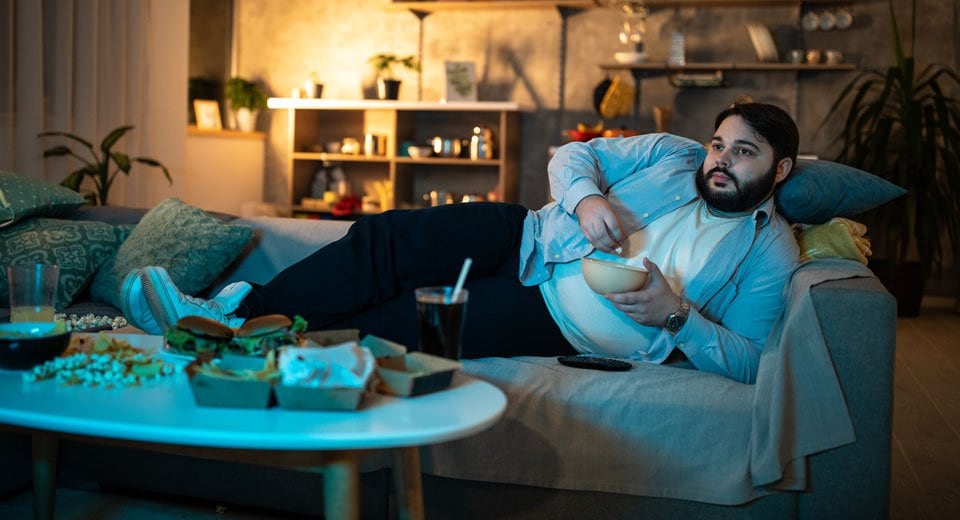Has the past year turned you into a zombie eater?

Are you a “zombie eater” who pays more attention to the closest screen than what’s on your plate? If so, it might affect your waistline.
Eighty-eight percent of us look at television or our phones during meals, according to a OnePoll survey of 2,000 people commissioned by the snack company.
The distraction caused by our devices means we aren’t paying attention to what we eat. Subjects who were distracted by their smartphones ate 15 percent more calories than those who were mindful of what went into their mouths, according to a study published in the Journal Physiology and Behavior in 2019. And a 2013 survey by British researchers found that being more aware of food as we eat helps us to remember what we actually ate and may prevent us from overeating at the next meal. They suggest attentive-eating principles might help dieters.
“Zombie eating definitely lends itself to a discussion on weight gain/obesity and the importance of mindfulness in every aspect of our lives including eating!” said Mita Gupta, MD a primary care physician at Cape Cod Healthcare’s Fontaine Primary Care in Harwich. Many of her patients have struggled with post-pandemic weight, she said.
“A variety of factors contributed to this,” she said. “More time at home for some people, which led to more unstructured time and snacking. Some people had less movement as gyms and fitness classes closed their doors. Given the situation, some of us sought out comfort foods. Some struggled with stress eating due to the stressors of the pandemic. For children, many organized sports were cancelled. Many people looked for new hobbies and found time to bake treats.”
If you are ready to get your weight under control and want to avoid being a zombie eater, the National Institutes for Health has tips to teach you how to practice mindful eating. And Dr. Gupta offered some motivation for why a healthy weight is so important:
What's extra weight doing to our bodies?
Obesity puts us at risk for many serious health conditions. Some examples are increasing the risk of sleep apnea, hypertension, type 2 diabetes, osteoarthritis, certain types of cancer, coronary artery disease, and stroke.
How do we know our healthy weight?
There are some screening tools that are helpful but none of the tools replace guidance from your primary care physician. Body Mass Index (BMI) is determined by height and weight but doesn't consider body composition. And weight alone is not an indicator of our overall health.
What are some of the factors you see contributing to weight gain?
We have access to so many processed foods with high sugar and fat content that stimulate our reward centers in our brain but are aggressively marketed as "healthy.” The availability of healthy food like fruits and vegetables is limited for many people. And, many of us are increasingly sedentary, sitting at our jobs and also during entertainment, which decreases our energy expenditure.
What strategies for losing weight do you discuss with your patients?
It is important to have an individualized comprehensive approach. Strategies often include diet and nutrition, physical activity and behavioral changes. Fitness devices such as Fitbits or Apple Watches can be helpful tools to increase motivation to get more steps in the day. Eating patterns such as intermittent fasting can be helpful for some individuals to achieve and maintain a healthy weight. Some of my patients have found weight loss applications like Noom really helpful in their efforts to lose weight successfully. In certain situations, pharmacologic treatment and surgical options can be a tool to treat obesity. Weight loss is incredibly difficult, and your primary care physician can help you identify options to work towards your healthy weight.
